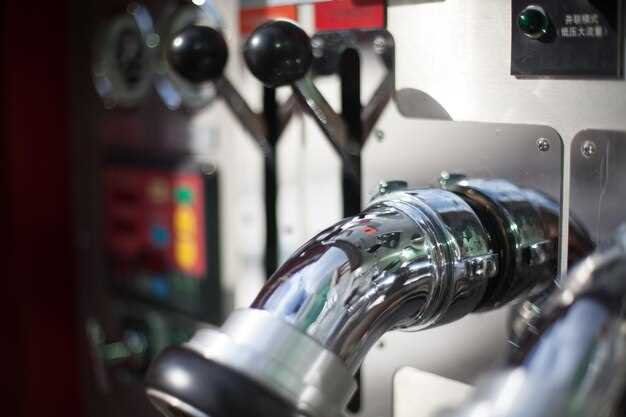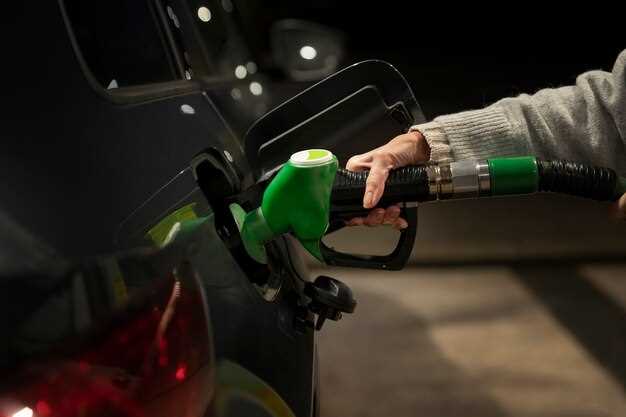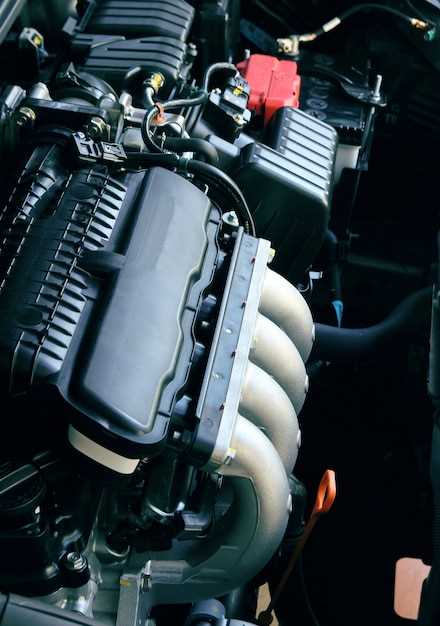
When it comes to optimizing automotive performance, fuel system mods play a crucial role in maximizing both flow and power output. Upgrading the fuel system not only ensures that your engine receives the necessary amount of fuel but also improves combustion efficiency, leading to significant gains in horsepower and torque.
Factors such as the capacity of fuel pumps, size of injectors, and the design of fuel lines all contribute to the overall performance of the fuel system. By implementing appropriate mods, car enthusiasts can enhance the fuel delivery mechanism, making it more responsive to engine demands, especially under high-performance conditions.
Whether you are a casual driver looking to improve your vehicle’s efficiency or a serious racer aiming for peak performance, understanding the intricacies of fuel system upgrades is essential. This article will delve into various types of fuel system enhancements and their impact on flow rates and overall power output.
Optimizing Fuel Injectors for Maximum Performance
Fuel injectors play a crucial role in the overall efficiency and power output of an engine. Upgrading or optimizing these components can significantly enhance performance, especially when combined with other mods aimed at improving air and fuel delivery. To achieve maximum performance, several factors must be considered, including injector size, spray pattern, and control strategy.
The size of the fuel injectors should match the engine’s horsepower goals. Larger injectors allow more fuel flow, which is beneficial for high-performance setups. However, choosing a size too large can lead to poor drivability and fuel economy. A careful balance must be struck to ensure that the injectors provide sufficient fuel without excessive waste.
Another key factor is the spray pattern of the injectors. An optimal spray pattern enhances atomization, ensuring that the fuel mixes well with air for efficient combustion. Upgraded injectors often feature advanced designs that provide better fuel distribution, resulting in smoother operation and improved throttle response.
Moreover, the fuel pressure supplied to the injectors can also be optimized. Increasing fuel pressure increases injector flow rates, which can be particularly useful for turbocharged or supercharged engines. However, this adjustment should be done carefully to avoid stressing the fuel system and components.
In addition, modern engines can benefit from electronic control unit (ECU) tuning that adapts injector timing and duration based on engine load and RPM, ensuring that fuel delivery is precisely matched to engine demands. This level of control enhances responsiveness and allows for greater power output while maintaining efficiency.
Regular maintenance and cleaning of fuel injectors also contribute to optimal performance. Clogged or dirty injectors can lead to inconsistent fuel flow and engine misfires. Utilizing fuel additives or professional cleaning services can help restore injector function, ensuring consistent performance over time.
In conclusion, optimizing fuel injectors involves careful selection based on size, design, and control mechanisms. Coupling these enhancements with other mods can unlock significant increases in power and efficiency, making injector optimization a vital part of any performance upgrade strategy.
Choosing the Right Fuel Pump for Increased Flow Rates

Upgrading your fuel system is a crucial step when looking to enhance flow rates and overall power output in your vehicle. One of the most critical components in this endeavor is the fuel pump. Selecting the right fuel pump involves evaluating several factors to ensure compatibility with your engine’s modifications and injection requirements.
First, consider the fuel flow rate of the pump. Flow rate is typically measured in gallons per hour (GPH) or liters per hour (LPH). For performance mods that increase horsepower, it is essential to choose a pump that can provide adequate fuel delivery to meet the demands of high-performance injector systems. A pump that can deliver at least 20% more fuel than the engine’s maximum requirements is a safe bet, ensuring your engine operates optimally without running lean.
Next, assess the pump type that best fits your setup. There are primarily two types of fuel pumps: inline and submersible. Inline pumps are suitable for external installations, often preferred for modified vehicles where space allows. Submersible pumps are designed to be submerged within the fuel tank, providing quieter operation and consistent performance. Ensure that the chosen pump is compatible with your vehicle’s structure and installation preferences.
Pressure ratings are another critical determinant. Performance injectors typically require higher fuel pressure to operate effectively. When upgrading your pump, select one with an adjustable pressure regulator or one that meets the specifications needed for your new injectors. Understanding the required pressure is essential to prevent inadequate fuel delivery or potential engine damage.
Lastly, consider the fuel type your engine uses. If you are running ethanol blends, it’s vital to select a pump designed to handle alcohol-based fuels. Ethanol can be corrosive and requires pumps with specific materials to ensure longevity and reliability.
In conclusion, choosing the right fuel pump involves careful consideration of flow rates, pump type, pressure ratings, and fuel compatibility. By making an informed choice, you can enhance your vehicle’s performance through improved fuel delivery, making your mods and injection systems operate at their full potential.
Tuning the ECU for Enhanced Fuel Delivery and Engine Response

One of the most effective ways to maximize engine performance is through tuning the Engine Control Unit (ECU). This process involves reprogramming the ECU parameters to optimize fuel injection, ignition timing, and various engine functions. With the right mods, you can significantly improve fuel delivery and enhance engine responsiveness.
When tuning the ECU, the primary goal is to achieve an ideal air-fuel ratio, which is crucial for efficient combustion. Adjustments to fuel injection maps allow for more precise control over how much fuel is injected into the combustion chamber, depending on engine load and RPM. This level of precision not only improves power output but also enhances throttle response, making the engine feel more engaging during acceleration.
Moreover, an ECU tune can help in maximizing the benefits from other fuel system upgrades, such as high-flow fuel injectors or upgraded fuel pumps. These mods increase the amount of fuel delivered to the engine, and a corresponding ECU tune ensures that the additional fuel is used effectively, preventing issues like flooding or lean conditions that can damage the engine.
Additionally, recalibrating the ECU can also improve overall driveability. By adjusting parameters related to fuel delivery and engine timing for different driving conditions, drivers can enjoy smoother performance and better responsiveness at any throttle position. This is especially noticeable in modified engines, where proper tuning is crucial to unleash the full potential of aftermarket upgrades.
In conclusion, tuning the ECU is a vital step when implementing fuel system upgrades. By enhancing fuel injection strategies and optimizing engine response, tuners can not only achieve greater power and efficiency but also ensure that the vehicle remains reliable and enjoyable to drive.




